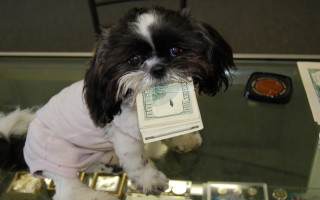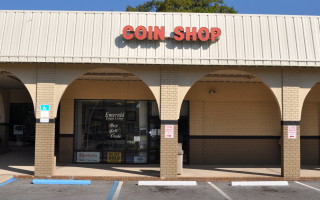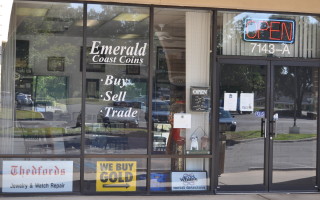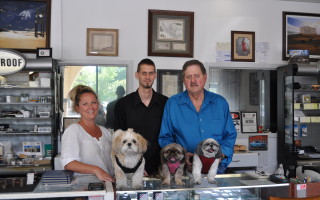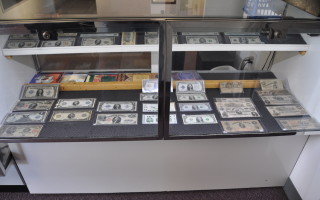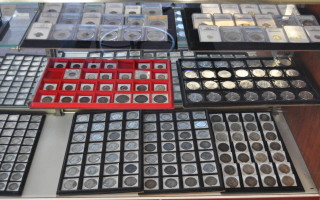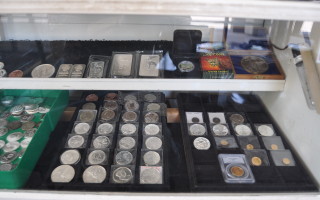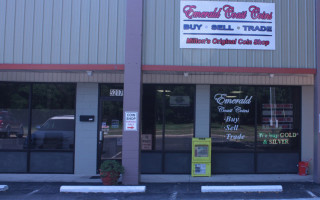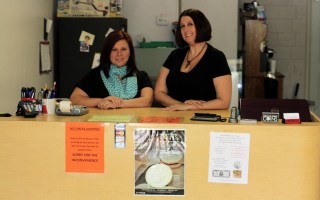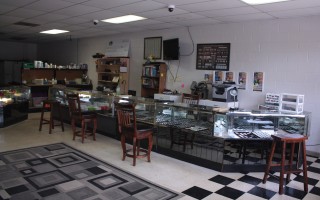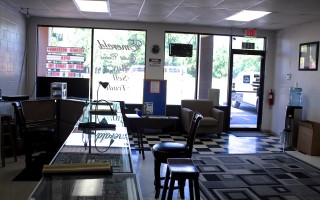Emerald Coast Coins was founded in 2002 by Steve Gerlach, Retired USN. It is a family business with a reputation for fair and honest dealings with their customers.
According to the Florida Department of Revenue, Effective July 1, 1999, the sale of coins and currency that are U.S. legal tender is no longer taxable. The sale of any other coin and any other currency with a price of more than $500, and the sale of gold, silver, and platinum bullion with a price of more than $500, is exempt.
For coins and currency that are legal tender of the United States, no tax is imposed regardless of whether the sales price exceeds the face value. It does not matter whether the coins or currency are in circulation.
No, we do have a reputation for paying higher prices than our competitors, but you should be wary of any company that “guarantees” that they pay the highest prices. There are many variables that go into how much a dealer may offer you for your coins. In some instances, we have customers with standing orders for certain coins that allow us to pay a premium price.
We also know that many of those “guaranteed highest price companies” are travelling dealers working from hotel rooms or temporary space. Far too often our customers tell us stories about being promised one price only to have that price be taken away when they were in front of the dealer.
We recommend that you work with a dealer you can trust, one that will be there after the deal is made and one that has ties to your local community. We welcome you to shop around, we are confident that our prices, reputation and service will earn your business.
Yes, we buy scrap gold.
The proper definition of scrap gold is this; “discarded waste material, especially metal suitable for reprocessing.” Now, by this definition, just about any old piece of broken or no longer worn jewelry qualifies as scrap gold. Gold is so valuable because there is only a fixed amount of it on earth. It cannot be made in a laboratory or factory, but it can be used and reused over and over again. It is the ultimate recyclable material. So, again, just about anything qualifies as scrap gold including; bracelets and chains, gold coins, gold crowns and dental bridgework, gold earrings, gold solder, gold pins, broaches, and gold watches. We also purchase sterling silver, flatware, & broken jewelry.
All US Gold coins; Dollars: 1935 and earlier; Halves: 1970 and earlier; Quarters: 1964 and earlier; Dimes: 1964 and earlier; Nickels: 1938 and earlier also 1942-1945; Pennies: 1958 and earlier.
All US Mint issued proof and mint sets and singles from current year and earlier; US Gold and Silver American Eagle singles and sets.
We also buy foreign coins made of gold, silver and platinum!
High denomination notes: $500, $1,000, $5,000 and $10,000; All US silver certificates 1957 and earlier; All US notes with a red or blue seal; All US currency from 1929 and older; Old US currency with bank names on the note.
Large size US currency from 1923 and earlier
US fractional currency 1862 – 1876
Yes, we buy and sell gold, platinum and silver bullion.
Yes, we buy and sell all types of gold, platinum and silver jewelry including rings, necklaces, bracelets, broaches, wedding & engagement rings, diamonds, wrist and pocket watches, antique jewelry and estate jewelry.
Yes, we appraise coins and currency, but not jewelry.
Determining the current value of most coins relies on numerous variables; specifically the condition of the coin. Simple estimates about your coin’s worth are frequently more advanced than may be envisioned. Even the smallest influences can drastically change a coin’s worth. We may be able to let you know what a “typical” coin is worth, but the real value may be quite a bit higher or lower. To get the highest offer, we must see your items in person to truly assess them.
In a word—DON’T. Cleaning can destroy the natural patina that collectors prefer. I have seen valuable coins that have lost half of their value because they were cleaned. Rubbing imparts light scratches onto coins. Cleaning with polish, using a pencil eraser or dipping in a chemical can subdue a coin’s natural luster and lower its value.
If the coins are dirty, and you just can’t resist the urge (please try), you might use a little mild liquid dish soap and water. Gently use your fingers to remove the crud, rinse well, and pat (don’t rub) dry.
If the coin has value beyond the value of the bullion, many economic factors may impact a coins value. How many of a certain type of coin were made? How many have survived? How many people care? On top of that, condition plays a role in determining a coin’s value. Age doesn’t necessarily make a coin more valuable. Depending upon what you have, there are different approaches to determining value.
A troy ounce is a standard measurement for precious metals. A troy ounce is 31.104 grams versus 28.35 grams in a regular (avoirdupois) ounce. There are 12 troy ounces to a troy pound and 14.58 troy ounces in a regular pound.
Bullion Value (BV) refers to the actual gold or silver value in a coin. Bullion value is determined by taking the current spot price times the actual gold weight (AGW) or actual silver weight (ASW).
Pre-1965 dollars, halves, quarters, and dimes contain silver, along with halves minted between 1965-1970. Nickels minted from 1942-1945 with a mint mark over the dome contain silver.


